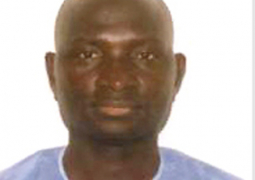"Power, Madam Chairperson, is never given on a silver platter. We cannot continue to adopt the reactive, passenger seat model in our interactions with the world.
When crisis hit, it is often women and children who are usually affected most. As a result, we must drive change and transformation. We must own not just the solutions, but the entire process, in every level of policy formulation and decision making.
We must move from standbys to active participants, from rhetoric to action.
Time has come for us not only to clap for our partners, men, but we must be seen to take the driving seat as transformative women leaders".
These were the remarks of Isatou Njie-Saidy the Vice President and Minister of Women's Affairs when she opened a two-day capacity building workshop for members of the National Women's Council and women leaders held at the Paradise Suites Hotel on Tuesday.
Mrs Njie Saidy in her speech also called on women, especially mothers, to change their attitude with a view to meeting challenges in future.
"Decision making positions require a certain amount of education, which is sometimes denied to the girls due to cultural practices such as early and forced marriage, as well as teenage pregnancy."
"To meet against these challenges requires attitudinal change, particularly among we mothers, who are sometimes found wanting in these situations," she added.
According to the Vice President, the amount of time and energy women spend on carrying out their unpaid reproductive roles serves as a barrier for them to participate in self-enhancing activities such as education, particularly in adult literacy classes, income generating activities and governance.
"Low literacy levels (37.1 percent female and 58.4 percent males) and low skills of women have culminated in their limited participation in the decision making processes. Available data indicates that less than 32 percent of formal private sector employees are females with approximately 10% in managerial positions. In the public sector, women constitutes less than 25% of the civil servants, and a large percentage of these are found in low paid jobs, despite the affirmative actions undertaken by government," she stated.
In the area of government, she went on, women's invisibility is pronounced, especially in local government administration.
"There are no women governors, mayors, chairpersons of councils or district chiefs. Out of the 1,873 villages in the country, there are only five female alkalolus," she pointed.
On the other hand, she stated, some of the few women who find themselves in leadership positions, at national or local levels, find it difficult to effectively contribute and to influence decisions due to their limited capacities, numbers and patriarchy that is deeply rooted within our institutions.
The Vice President also stated that after a conducted assessment of women in decision making positions, it was revealed, among other things, that limited capacity, lack of confidence and resources are some of the main reasons why women do not take up leadership positions, especially political positions.
She said the study recommends capacity development as one of the main strategies that should be adopted to address the situation highlighted above.
Mrs Njie Saidy pointed out that the workshop should not only ensure sustainability of resources, but also to improve on the gains already made. She further told the participants that the training should help them build capacities in their various leadership roles, and also encourage them to support each other's leadership aspirations through networking.


